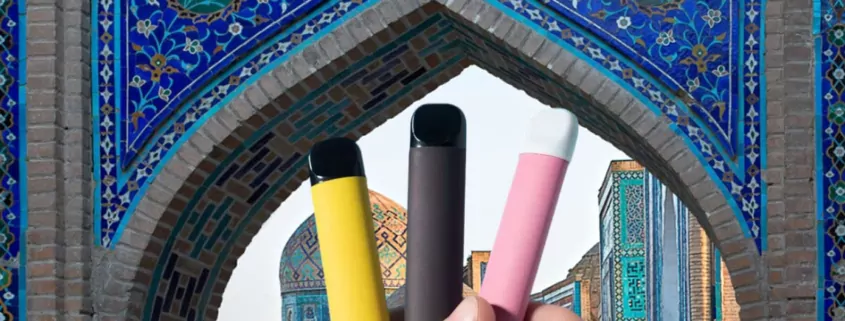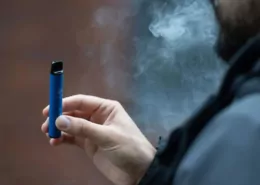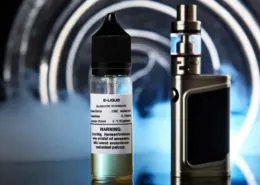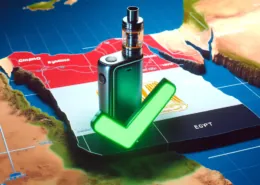Uzbekistan Clarifies Scope of New Vape Ban: What’s Outlawed vs. Still Legal
Senate Approves Law Targeting E-Cigarettes, Liquids, Nicotine Pouches; Heated Tobacco Excluded from Ban
Following the approval of a significant new law by Uzbekistan’s Senate (Oliy Majlis) on April 30, aimed at curbing the circulation of certain nicotine products, clarity has emerged on exactly which items are targeted by the ban and which remain legally permissible. The legislation, now awaiting presidential signature, introduces substantial penalties for violations but specifically excludes popular heated tobacco products (HTPs) like IQOS from the outright ban, focusing instead on e-cigarettes (vapes) and related systems.
The law was driven by concerns over a massive influx of unregulated electronic nicotine delivery systems (ENDS) and their growing popularity among youth. Senators highlighted alarming statistics: 5.4 million e-cigarettes worth $28.5 million were imported between 2021-2023, an 80-fold increase compared to previous years. Usage among young adults (18-29) is reportedly five times higher than among older adults, with significant uptake observed even among schoolchildren.
Products Subject to the New Ban
The law explicitly prohibits the circulation (defined as production, manufacturing, storage, transportation, import, and export) of the following product categories:
- Electronic Nicotine Delivery Systems (ENDS): This includes typical vaping devices often referred to as “vapes” or “mods” that use a reservoir for e-liquid (e.g., case vapes).
- E-liquids: Bottled liquids used to fill vaping devices, containing nicotine and/or flavorings (e.g., brands like ICE FLAIR mentioned in source).
- Disposable E-cigarettes: Pre-filled, non-rechargeable devices, often flavored (e.g., brands like HQD, MASKKING mentioned in source).
- Pod Systems: Cartridge-based devices for nicotine delivery (e.g., JUUL and similar devices like Zero mentioned in source).
- Electronic Pipes: Devices mimicking traditional pipes but using electronic vaporization.
- Nicotine Pouches (Tobacco-Free): Oral pouches containing nicotine but no tobacco leaf (e.g., brands like VELO mentioned in source).
- Snus: Moistened, powdered oral tobacco placed under the lip.
Products Remaining Permitted for Circulation
The new ban does not apply to the following traditional or established alternative tobacco products:
- Traditional Cigarettes: Standard manufactured cigarettes.
- Roll-Your-Own Tobacco: Loose tobacco for hand-rolling.
- Cigars and Cigarillos.
- Pipe Tobacco: For use in traditional smoking pipes.
- Hookah (Shisha) Tobacco.
- Heated Tobacco Systems (HTPs): Devices that heat tobacco without burning it (e.g., IQOS, glo, Ploom mentioned in source).
- Heated Tobacco Sticks: Consumables used with HTP devices (e.g., HEETS mentioned in source).
- Nasvay: A traditional form of moist smokeless tobacco placed in the mouth (permitted in Uzbekistan despite bans elsewhere).
Penalties and Enforcement
To enforce the ban on the prohibited items, the law introduces significant penalties under the Administrative and Criminal Codes:
- Administrative Liability (First Offence): Confiscation of goods plus a fine ranging from 37.5 million to 75 million soums.
- Criminal Liability (e.g., Repeated Offence): Fines from 150 million to 225 million soums, up to 3 years of correctional labor, or imprisonment up to 5 years.
- Aggravated Circumstances (Large Scale, Group Import etc.): Potential imprisonment up to 12 years.
A provision allows for exemption from liability if individuals voluntarily surrender prohibited products and confess to authorities.
Separately, the law also amends existing articles (Art. 186-1) covering the illegal circulation of alcohol and tobacco products to explicitly include tobacco heating systems, meaning illicit trade in HTPs will also face penalties under those established regulations, though their general circulation remains legal unlike vapes.
This legislation marks a decisive move by Uzbekistan to combat the perceived public health risks associated with newer nicotine delivery systems like vapes and oral pouches, while currently allowing HTPs and traditional tobacco products to remain legally available.
- Is It Illegal to Vape or Smoke While Driving in Minnesota? - August 15, 2025
- American Airlines Vaping Passenger Alleges Assault in Police Report - August 15, 2025
- NEXA PIX 35K Disposable Vape with Crystal Tank Review - August 15, 2025









